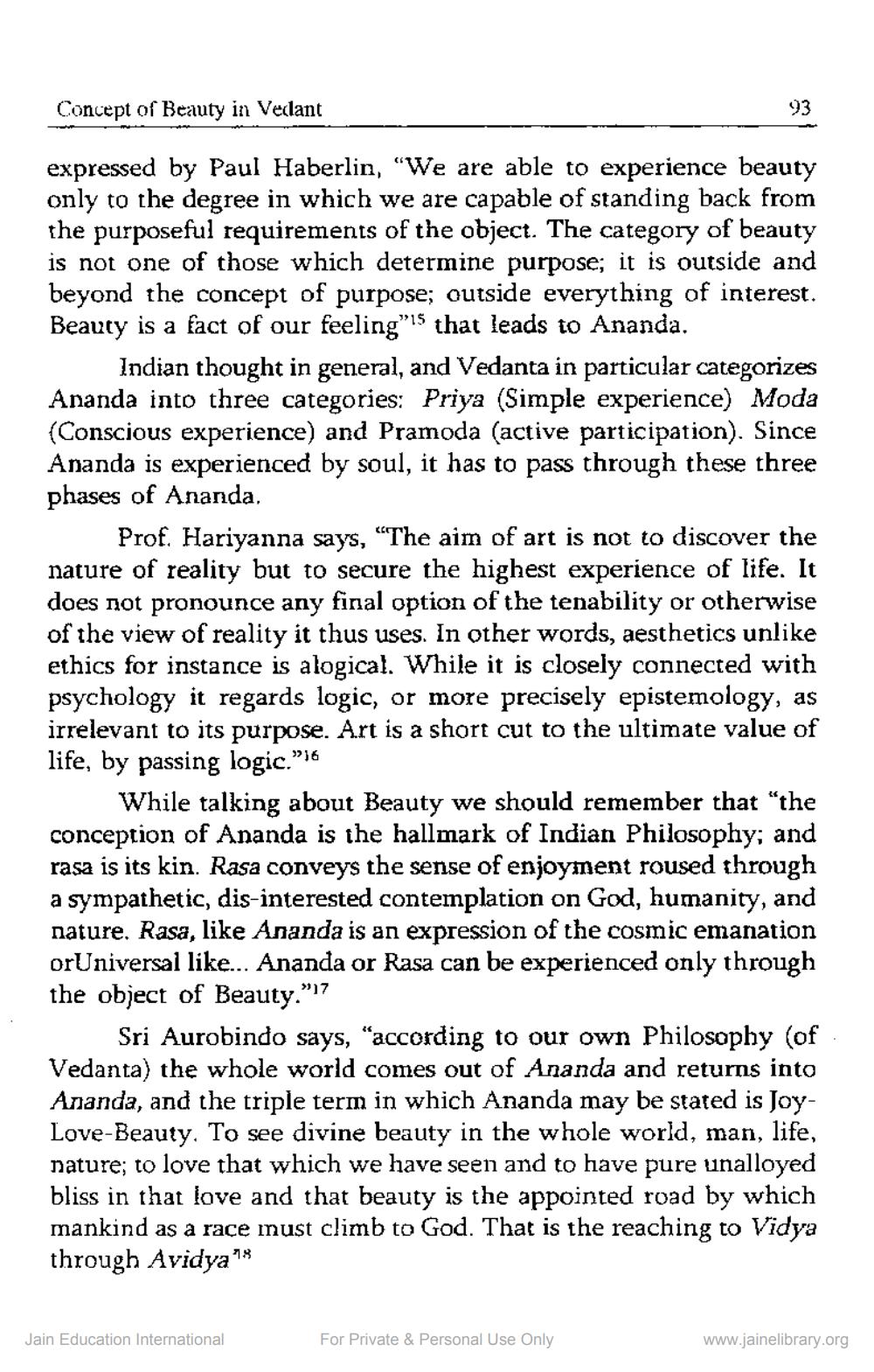Book Title: Concept of Beauty in Vedant Author(s): Hemant Shah Publisher: Z_Philosophical_Writings_001802.pdf View full book textPage 7
________________ Concept of Beauty in Vedant expressed by Paul Haberlin, "We are able to experience beauty only to the degree in which we are capable of standing back from the purposeful requirements of the object. The category of beauty is not one of those which determine purpose; it is outside and beyond the concept of purpose; outside everything of interest. Beauty is a fact of our feeling"s that leads to Ananda. Indian thought in general, and Vedanta in particular categorizes Ananda into three categories: Priya (Simple experience) Moda (Conscious experience) and Pramoda (active participation). Since Ananda is experienced by soul, it has to pass through these three phases of Ananda. Prof. Hariyanna says, "The aim of art is not to discover the nature of reality but to secure the highest experience of life. It does not pronounce any final option of the tenability or otherwise of the view of reality it thus uses. In other words, aesthetics unlike ethics for instance is alogical. While it is closely connected with psychology it regards logic, or more precisely epistemology, as irrelevant to its purpose. Art is a short cut to the ultimate value of life, by passing logic.”) While talking about Beauty we should remember that "the conception of Ananda is the hallmark of Indian Philosophy; and rasa is its kin. Rasa conveys the sense of enjoyment roused through a sympathetic, dis-interested contemplation on God, humanity, and nature. Rasa, like Ananda is an expression of the cosmic emanation orUniversal like... Ananda or Rasa can be experienced only through the object of Beauty."? Sri Aurobindo says, "according to our own Philosophy (of Vedanta) the whole world comes out of Ananda and returns into Ananda, and the triple term in which Ananda may be stated is JoyLove-Beauty. To see divine beauty in the whole world, man, life, nature; to love that which we have seen and to have pure unalloyed bliss in that love and that beauty is the appointed road by which mankind as a race must climb to God. That is the reaching to Vidya through Avidya Jain Education International For Private & Personal Use Only www.jainelibrary.orgPage Navigation
1 ... 5 6 7 8 9 10 11 12
